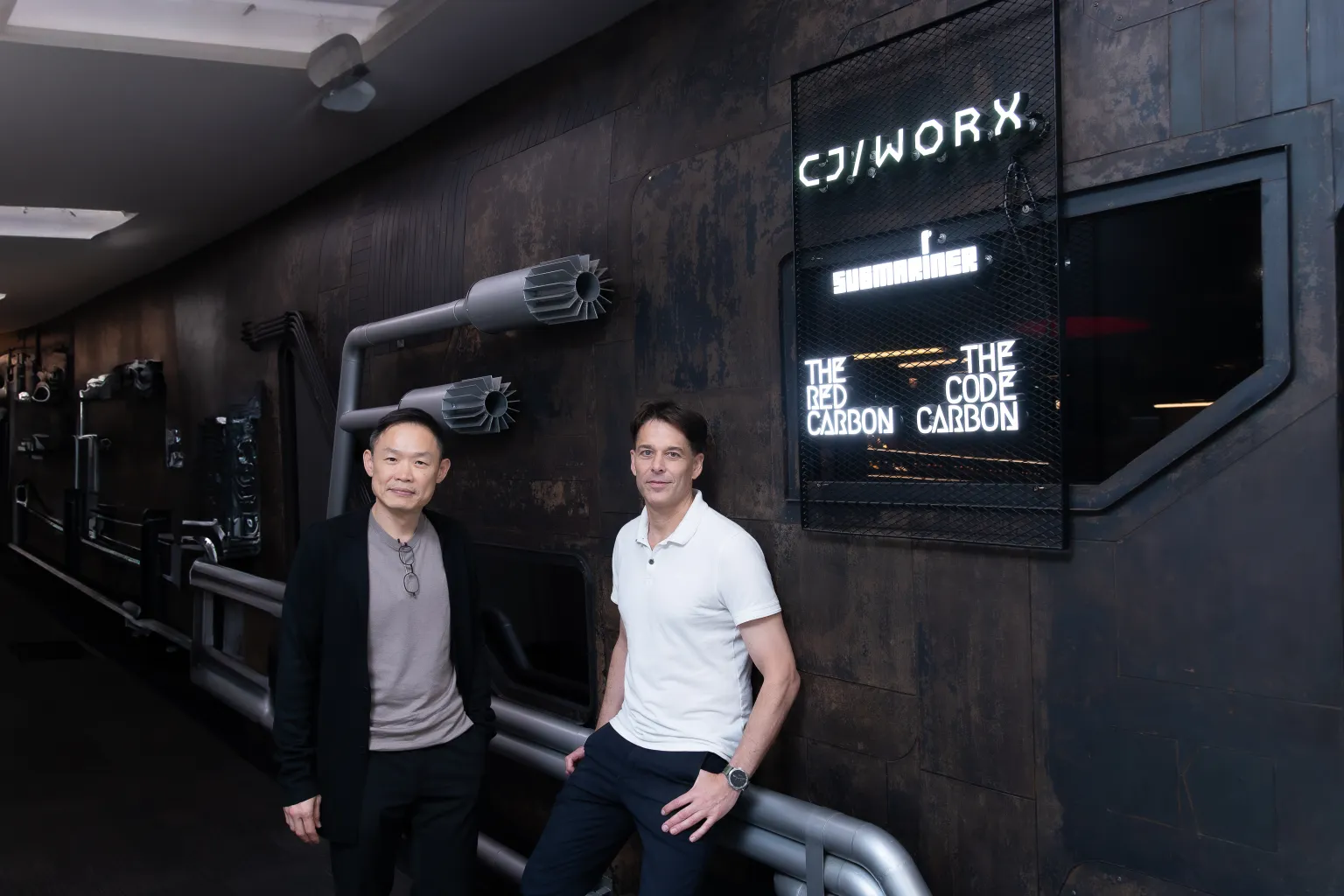
CJ WORX undergoes a major transformation, utilizing psychology to capture the hearts of customers.
In a world where everything moves rapidly, consumer loyalty is decreasing, and media consumption has many options, how can creative advertising agencies move forward? On a day when the enormous existing customer demands become a challenging problem for advertising.
Marketeer takes you to talk with CJ Worx, a veteran in the digital agency field, with Jinn Phaoprapai, Chairman and Founder, and the new partner Joris Groen.
With over 15 years in the Commercial field, CJ Worx has navigated from the television media era through the transition to the digital age, witnessing every change, until the day the company itself had to evolve as well.

A World Driven by Data Insights and AI
Joris: “Nowadays, the world is a realm of Data and AI. Every company must focus on being data-driven. But what follows is a massive amount of insight data, which must be generated correctly and can be leveraged in business; thus, data is as valuable as gold. This gold can increase in value by being used precisely.”
Jinn: “Previously, CJ Worx engaged in Social Listening, but as digital disruption made data more detailed and AI came into play, the already detailed data became even more profound. We now hold vast amounts of data, which changes how agencies operate. For example, a restaurant brand with chains worldwide, when our team delved into the brand’s deeply stored data to identify communication opportunities, discovered that people tend to order from this restaurant around 16:00, which is unusual compared to other restaurants, and often at gas station branches to take home to their families after work. Hence, the advertising saw an opportunity to launch campaigns, promotions, and communications that resonate with family themes, and the response was positive.”
Jinn: “This reflects how the agency’s operations have changed. Previously, we awaited briefs from clients, but now, as a data-driven agency, we can directly seek out briefs by tracking data.
Jinn: “Agencies in the modern world need to offer something special because some things brands can do themselves without hiring an agency. The first thing an agency must have is a deep understanding of consumers, deeper than what the brands know. That’s why CJ Worx has a data team to manage insights and incorporates psychology to analyze behaviors and find persuasive strategies. After understanding the insights, creativity is essential to make individuals feel good about the brand.
Because creating brand love involves a complex process that supports each other, it can’t be achieved with just one masterstroke.
Therefore, CJ Worx sees that instead of just creating advertisements, it’s time to transform the business by using psychology to foster new growth.
This marks the first time in the Thai agency industry that psychology has been seriously applied to advertising work, adapted for data management.

Because Commercial Marketing and Psychology are essentially the same thing:
Jinn: “Marketing Psychology is not new at all. This science has been around for a long time and is widely used, although people may not realize it. Psychology is a branch of science that overlaps with scientific disciplines because it involves systematic methods of study.
Especially in advertising, where the job is to persuade the audience to adopt a certain behavior. For example, remember when Apple launched a product with Steve Jobs; the first slide deliberately stated one price, but the next slide showed a lower price. These tactics are all backed by psychology to sway people to make price comparisons, fueling motivation in the minds of consumers. Behind all these are hidden psychological tactics.
Behavior comes from being motivated by various stimuli. 99% of behaviors exhibited by people originate from the subconscious mind.
Therefore, the role of good advertising, especially in online media, should be to change behavior without the need for analysis, naturally expressing through the conscious mind. For example, how would Popmart change the behavior of someone who doesn’t want to buy to suddenly purchase? One technique is scarcity, playing on people’s feelings that it’s an item that must be had, must be bought quickly because it’s a Rare Item. Such marketing strategies have been around for a long time and are nothing new.
Good use of psychology means that consumers are not aware that they are being influenced by psychology.

Advertising and the 3-second rule.
Jinn: “In the digital media era, with numerous competitors and high competition, consumers have a vast amount of content at their fingertips. It becomes difficult to stop someone to pay attention to our advertisement. The ‘3-second rule’ still applies; within the first three seconds, we need to capture the customer’s attention so that they don’t scroll past our content. Psychology is the best science to address how to change a person’s behavior in this context.”
Joris: “An example of a simple basic technique is, during these crucial minutes, if you want people to stop and look at your work, the first technique is to create curiosity. You might use headlines that promise exceptional benefits, such as ‘Lose three kilograms in three days.’ Just this can make people curious to know more or try it out.
Or you might introduce something ambiguous and unclear to provoke curiosity, or sometimes you can go to extremes—maximum drama or extreme happiness—playing with the emotions of the viewers. All of these are essentially psychological tactics.
Author: Supattra Marketeer



